 Your new post is loading...
 Your new post is loading...
Research shows that hands-on learning is an effective way to teach students science. A 2009 study found that eighth-grade students who were involved in hands-on science projects demonstrated a deeper understanding of concepts than students who were taught with traditional methods such as textbook readings, lectures, and tests (Riskowski et al., 2009).
Why is hands-on learning effective? We can look to neuroscience for insight. Students who participate in science experiments, instead of just observing them, have a deeper conceptual understanding of science. Through brain imaging, researchers found that physical experience activates the sensorimotor region of students' brains, which helps reinforce what they're learning (Kontra et al., 2015). If students use their hands as well as their minds, they're essentially learning twice. Learn more / En savoir plus / Mehr erfahren: https://gustmees.wordpress.com/?s=maker https://www.scoop.it/t/21st-century-learning-and-teaching/?&tag=Ideas+for+makerspaces
Via Gust MEES
This phenomenon — testing yourself on an idea or concept to help you remember it — is called the “testing effect” or “retrieval practice.” People have known about the idea for centuries. Sir Francis Bacon mentioned it, as did the psychologist William James. In 350 BCE, Aristotle wrote that “exercise in repeatedly recalling a thing strengthens the memory.”
But the testing effect had been mostly overlooked in recent years. “What psychologists interested in learning and memory have always emphasized is the acquisition part. The taking [information] in and getting it into memory,” Roediger said.
Laypeople — and even experts — tend to think of human memory as a box to be packed with information. “Memory is dynamic, and it keeps changing,” McDaniel said. “And retrieval helps it change.” Learn more / En savoir plus / Mehr erfahren: http://www.scoop.it/t/21st-century-learning-and-teaching/?tag=Brain
Via Gust MEES
“Skills young people should be learning to be prepared for a career in 2020 include:
The ability to concentrate, to focus deeply.
The ability to distinguish between the “noise” and the message in the ever-growing sea of information. The ability to do public problem solving through cooperative work. The ability to search effectively for information and to be able to discern the quality and veracity of the information one finds and then communicate these findings well. Synthesizing skills (being able to bring together details from many sources). The capability to be futures-minded through formal education in the practices of horizon-scanning, trends analysis and strategic foresight.” Learn more / En savoir plus / Mehr erfahren: https://gustmees.wordpress.com/2015/05/26/what-are-the-skills-needed-from-students-in-the-future/
Via Gust MEES
What is Phenomenon-Based Learning?
Finland will go through a new education reform that will take over in the academic year 2016-2017. Phenomenon-Based Learning will be complementing Finland’s traditional subjects. The Phenomenon or Topic Based Learning is being planned to be conducted over periods during the year and could be paced in projects – is the old new in Finland’s education. For more than three decades, Finnish schools have had a form of Phenomenon-Based Learning. What will change in 2016-2017 is that it will be obligatory in all basic schools for seven to 16-year-olds.
Phenomenon-Based Learning tackles real-world scenarios holistically from different subject areas’ perspectives. This method will entail a rich learning experience, which is relevant to learners’ lives. The interdisciplinary learning could be conducted in a simple way, by linking similar knowledge areas between different subjects and introducing them at the same slot of the academic year. This develops awareness of how curricula intersect to form the broader frame of knowledge. A more sophisticated interdisciplinary approach, such as Phenomenon-Based Learning occurs when we go beyond simply linking different subjects to applying, organising centers and essential questions to plan topic teaching. One example could be the questions students have about a topic such as the importance of the European Union. To answer these questions knowledge and skills from economics, history, geography and languages are to be integrated.
Learn more / En savoir plus / Mehr erfahren: http://www.scoop.it/t/21st-century-learning-and-teaching/?tag=Finland http://www.scoop.it/t/21st-century-learning-and-teaching/?tag=Phenomenon+Based+Learning
Via Gust MEES
The term “new normal” is the lingo used to describe drastic change in doing something or life after a major event. The change is usually
quick and immediate. It alters one’s approach to something or way of life. In the educational world a slower transition is happening that will create a new normal. That change agent is social media. Social media has been around for some time but its practical use is relatively new to edu
cators. As I engage more and more educators in the use of social media for educational purposes I hear a lot of the same questions. Learn more / En savoir plus / Mehr erfahren: http://www.scoop.it/t/social-media-and-its-influence
Via Gust MEES
— Breaking up and spacing out study time over days or weeks can substantially boost how much of the material students retain, and for longer, compared to lumping everything into a single, nose-to-the-grindstone session.
— Varying the studying environment — by hitting the books in, say, a cafe or garden rather than only hunkering down in the library, or even by listening to different background music — can help reinforce and sharpen the memory of what you learn.
— A 15-minute break to go for a walk or trawl on social media isn’t necessarily wasteful procrastination. Distractions and interruptions can allow for mental “incubation” and flashes of insight — but only if you’ve been working at a problem for a while and get stuck, according to a 2009 research meta-analysis.
— Quizzing oneself on new material, such as by reciting it aloud from memory or trying to tell a friend about it, is a far more powerful way to master information than just re-reading it, according to work by researchers including Henry Roediger III and Jeffrey Karpicke. (Roediger has co-authored his own book, “Make It Stick: The Science of Successful Learning.”)
Learn more / En savoir plus / Mehr erfahren: https://gustmees.wordpress.com/2016/03/14/time-the-most-important-factor-neglected-in-education/ http://www.scoop.it/t/21st-century-learning-and-teaching/?tag=Brain
Via Gust MEES
But what I did realize is that successful people are successful because they approach learning in a consistent, systematic, results-focused way. Bravery isn't a requirement for success. Innate talent isn't a requirement for success. Talented, highly skilled people don't take big risks yet they still learn to accomplish big things.
How? They prepare. They train. They constantly experiment and adapt and refine, refine, refine. Successful people gain superior skills not by breaking through the envelope but by approaching and then slowly and incrementally expanding the boundaries of that envelope.
The key to learning is to make small, smart changes, evaluate the results, discard what doesn't work, and further refine what does work. When you constantly modify and refine something you already do well, you can do it even better. Learn more / En savoir plus / Mehr erfahren: http://www.scoop.it/t/21st-century-learning-and-teaching/?tag=Success
Via Gust MEES
Nouvelle affaire de fuite de données personnelles mais cette fois le dossier est plus que sensible puisque ces données concernent des policiers français. Selon RTL, les données de pas moins de 112.000 fonctionnaires de police sont dans la nature. C'est la base de données de la Mutuelle Générale de la Police qui a été compromise. Mais il ne s'agirait pas d'une attaque, plutôt d'une vengeance.
C'est en effet un employé de la mutuelle qui aurait aspiré les données suite à différend avec sa hiérarchie. RTL révèle que "le piratage remonte au 2 juin dernier, lorsqu'un responsable d'agence de la mutuelle, installé à Limoges, décide de copier le fichier des adhérents pour le télécharger sur le cloud de Google. En clair, les adresses et numéros de téléphone de 112.000 policiers, actifs et retraités, se retrouvent alors sur un support non sécurisé, protégé par un simple mot de passe. La direction de la mutuelle, qui a mis à pied l'employé indélicat, a mis trois semaines pour découvrir l'étendue des dégâts". Learn more / En savoir plus / Mehr erfahren: https://gustmees.wordpress.com/2013/12/21/privacy-in-the-digital-world-shouldnt-we-talk-about-it/ https://gustmees.wordpress.com/2013/05/12/cyber-security-the-weakest-link-in-the-security-chain-is-the-human/
Via Gust MEES
The cyber attack vectors available to hackers will continue to grow as the Internet of Things (IoTs) become more commonplace, making valuable data accessible through an ever-widening selection of entry points.
Although it's not the hackers alone, the NSA is also behind the Internet of Things.
We already know the United States National Security Agency's (NSA) power to spy on American as well as foreign people – thanks to the revelations made by whistleblower Edward Snowden in 2013.
But, now the agency is looking for new ways to collect even more data on foreign intelligence, and for this, the NSA is researching the possibilities of exploiting internet-connected biomedical devices ranging from thermostats to pacemakers.
During a military technology conference in Washington D.C. on Friday, NSA deputy director Richard Ledgett said his agency officials are "looking at it sort of theoretically from a research point of view right now." Learn more / En savoir plus / Mehr erfahren: http://www.scoop.it/t/securite-pc-et-internet/?tag=NSA http://www.scoop.it/t/securite-pc-et-internet/?tag=Cyberespionage
Via Gust MEES
Digital skills call for digital training
So now we’ve established that training is going to be one of the cornerstones of beating the Digital Skills Shortage. But what kind of training? Digital! You wouldn’t teach someone about the future by using ancient history textbooks, and you can’t just rely on traditional face-to-face training to teach digital skills.
But aside from the fact that digital training matches the subject matter more closely, another thing to consider is the frequency of training. One of the big four accounting firms, Deloitte, suggested that half of all digital skills become obsolete within about 30 months, due to technological change and development [5]. So that means constant updates are needed. Now, you could call in an external trainer and organize a workshop on a large scale every couple of years, but we could be talking about costs of tens, if not hundreds of thousands of dollars in lost working time, organizational time, and hiring trainers.
The idea is that if you have an online training program, then it’s simple enough to update the content as frequently as necessary. On a monthly, bi-monthly, or quarterly basis; all that’s needed to keep training up to date is to stay abreast of any changes in the industry. Overall, this makes a lot more financial sense than offline training.
Besides this, a survey by Brandon Hall titled the “State of Learning” study, showed that employees expect continuous learning opportunities; for instance:
61% expect learning activity at least weekly,
90% expect learning activity at least monthly Learn more / En savoir plus / Mehr erfahren: https://gustmees.wordpress.com/2015/05/26/what-are-the-skills-needed-from-students-in-the-future/ https://gustmees.wordpress.com/2016/02/18/the-new-possibilities-to-learn-and-teach-with-ict/ https://gustmees.wordpress.com/2015/07/19/learning-path-for-professional-21st-century-learning-by-ict-practice/ https://gustmees.wordpress.com/2015/12/27/what-are-the-best-ways-of-teaching-and-learning-ideas-and-reflections/
Via Gust MEES
Modern cars contain tens of specialized computers that control everything from infotainment functions to steering and brakes. The pressing need to protect these computers from hackers will likely open up a new market for car-related software security products.
Karamba Security, a start-up based in Ann Arbor, Michigan, is one of the companies that has stepped up to answer this demand. The company's anti-malware technology, unveiled Thursday, is designed to protect externally accessible electronic control units (ECUs) found in connected cars.
These controllers, like those that handle handle telematics, infotainment and on-board diagnostics, can be accessed via Wi-Fi, Bluetooth or even the Internet, so they can serve as entry points for hackers into a car's network. Learn more / En savoir plus / Mehr erfahren: https://globaleducationandsocialmedia.wordpress.com/2014/01/21/why-is-it-a-must-to-have-basics-knowledge-of-cyber-security-in-a-connected-technology-world/ http://www.scoop.it/t/securite-pc-et-internet/?tag=SHODAN+Search+Engine http://www.scoop.it/t/21st-century-learning-and-teaching/?tag=Internet+of+Things http://www.scoop.it/t/securite-pc-et-internet/?tag=smart-TV http://www.scoop.it/t/securite-pc-et-internet/?tag=Internet+of+things http://www.scoop.it/t/securite-pc-et-internet/?tag=Cars
Via Gust MEES
|
“[Adolescence is] a stage of life when we can really thrive, but we need to take advantage of the opportunity,” said Temple University neuroscientist Laurence Steinberg at a Learning and the Brain conference in Boston. Steinberg has spent his career studying how the adolescent brain develops and believes there is a fundamental disconnect between the popular characterizations of adolescents and what’s really going on in their brains.
Because the brain is still developing during adolescence, it has incredible plasticity. It’s akin to the first five years of life, when a child’s brain is growing and developing new pathways all the time in response to experiences. Adult brains are somewhat plastic as well — otherwise they wouldn’t be able to learn new things — but “brain plasticity in adulthood involves minor changes to existing circuits, not the wholesale development of new ones or elimination of others,” Steinberg said. The adolescent brain is exquisitely sensitive to experience,” Steinberg said. “It is like the recording device is turned up to a different level of sensitivity.” That’s why humans tend to remember even the most mundane events from adolescence much better than even important events that took place later in life. It also means adolescence could be an extremely important window for learning that sticks. Steinberg notes this window is also lengthening as scientists observe the onset of puberty happening earlier and young people taking on adult roles later in life. Between these two factors, one biological and one social, adolescence researchers now generally say the period lasts 15 years between the ages of 10 and 25. Learn more / En savoir plus / Mehr erfahren: http://www.scoop.it/t/21st-century-learning-and-teaching/?tag=Brain Use #Andragogy UP from 11 years: https://gustmees.wordpress.com/2015/05/13/andragogy-adult-teaching-how-to-teach-ict/
Via Gust MEES
There is no leadership, personal or organizational, without listening. In fact, ability to truly listen (and not just hear) is the foundation of having a conversation, building trust, influencing others, resolving conflicts, driving your vision, building relationships, implementing change and... Learn more / En savoir plus / Mehr erfahren: http://www.scoop.it/t/21st-century-learning-and-teaching/?tag=listening
Via Gust MEES
Brain, Learning, and Teaching Infographic
I hope you find the Brain Hacking infographic above useful. You can access the other Brain-Based Learning infographics I created by scrolling down my ED!Blog. Please share it with other educators, parents, and learners. I will feature additional Brain-Based Learning Infographics in my future NEWSLETTERS, so please SIGN UP if you would like to receive more tips and strategies that work in helping students become better learners.
If you find the information in the infographic useful, consider buying "Crush School: Every Student's Guide To Killing It In The Classroom", which is a book I wrote to help students learn more efficiently and effectively using proven research based strategies.
And Remember: You Have the Power to Change the World. Use it often.
Learn more / En savoir plus / Mehr erfahren: http://www.scoop.it/t/21st-century-learning-and-teaching/?tag=Brain
Via Gust MEES
Teaching students good learning strategies would ensure that they know how to acquire new knowledge, which leads to improved learning outcomes, writes lead author Helen Askell-Williams of Flinders University in Adelaide, Australia. And studies bear this out. Askell-Williams cites as one example a recent finding by PISA, the Programme for International Student Assessment, which administers academic proficiency tests to students around the globe, and place American students in the mediocre middle. “Students who use appropriate strategies to understand and remember what they read, such as underlining important parts of the texts or discussing what they read with other people, perform at least 73 points higher in the PISA assessment—that is, one full proficiency level or nearly two full school years—than students who use these strategies the least,” the PISA report reads. Learn more / En savoir plus / Mehr erfahren: https://gustmees.wordpress.com/2014/10/03/design-the-learning-of-your-learners-students-ideas/ https://gustmees.wordpress.com/2015/07/19/learning-path-for-professional-21st-century-learning-by-ict-practice/
Via Gust MEES
. . YOU created your blog, WHAT to take care about now!? . SO, you created a blog; hopefully you did read my advice on my previous blog posts. Let us have a look back on those blog posts and finding out WHAT WE can do BETTER to have success in the internet blogging community:…
Via Gust MEES
On this day 25 years ago, August 6, 1991, the world's first website created by Tim Berners-Lee went live
Via Gust MEES
The digital world is a vast expanse of learning and entertainment. But it is in this digital world that kids are also exposed to many risks, such as cyberbullying, technology addiction, obscene and violent content, radicalization, scams and data theft. The problem lies in the fast and ever evolving nature of the digital world, where proper internet governance and policies for child protection are slow to catch up, rendering them ineffective.
Moreover, there is the digital age gap. The way children use technology is very different from adults. This gap makes it difficult for parents and educators to fully understand the risks and threats that children could face online. As a result, adults may feel unable to advise children on the safe and responsible use of digital technologies. Likewise, this gap gives rise to different perspectives of what is considered acceptable behaviour.
So how can we, as parents, educators and leaders, prepare our children for the digital age? Without a doubt, it is critical for us to equip them with digital intelligence. Learn more / En savoir plus / Mehr erfahren: https://gustmees.wordpress.com/2015/07/19/learning-path-for-professional-21st-century-learning-by-ict-practice/ https://gustmees.wordpress.com/2014/10/03/design-the-learning-of-your-learners-students-ideas/ http://www.dqproject.org/
Via Gust MEES, juandoming, Edumorfosis
Effective teachers for all classrooms? It’s time for teacherpreneurs
Education conversations around the globe are focused on how to recruit, evaluate, and develop effective teachers. And for good reason. A steady drip of empirical evidence has shown that teachers are the most crucial in-school factor in student learning.
But in many cases education policy leaders have fixated on firing bad teachers and recruiting better ones. They have paid far less attention to spreading the expertise of the many effective teachers already teaching—or to providing them with opportunities to lead without leaving their classrooms and profession.
The Teacherpreneur
Enter the teacherpreneur—who teaches students regularly but has the time, space, and reward to incubate and execute his or her own ideas. Imagine a public school teacher who has the respect (and income potential) of an endowed chair at a research university and whose pedagogical and policy expertise drives innovative, collaborative projects that spread effective teaching practices.
There are at least six sound reasons for this bold brand of teacher leadership:
Researchers have proven that students learn more when their teachers collaborate in deep and authentic ways;
Principals alone cannot address demands of 21st-century learning and accountability;
Top-performing nations invest in teachers as leaders;
The most effective teacher evaluation systems are driven by master teachers;
Teachers trust their teaching colleagues more than anyone else to help them improve their practice; and
Large percentages of teachers are interested in leading without leaving the classroom.
Learn more / En savoir plus / Mehr erfahren: http://www.scoop.it/t/21st-century-learning-and-teaching/?tag=Teacherpreneur https://gustmees.wordpress.com/2016/05/19/a-holistic-view-of-what-will-influence-education-in-the-future/
Via Gust MEES
TEACHER LEADERSHIP & DEEPER LEARNING FOR ALL STUDENTS
In this new paper commissioned by the Ford Foundation, Barnett Berry makes the case for how a system of teacher leadership and learning can fuel deeper learning for all students.
Here is what the paper tackles:
examines current reforms’ limitations and notes some promising emergent examples, (like Social Justice Humanitas Academy in LAUSD); summarizes 30 years of research about how teachers learn and lead (also drawing on stories of teachers CTQ has worked with since our founding in 1998); identifies three promising shifts that could be leveraged to create an effective system of teacher leadership and learning; and
describes next steps that stakeholders (including policymakers, USDOE, state education leaders, superintendents, and others) can take to advance teacher leadership toward a more equitable public education system. The infographic below reveals 3 big changes we can leverage now to improve public education for all students. Learn more / En savoir plus / Mehr erfahren: http://www.scoop.it/t/21st-century-learning-and-teaching/?tag=LeaderShip http://www.scoop.it/t/21st-century-learning-and-teaching/?tag=Situational+Leadership+Theory
Via Gust MEES, Ajo Monzó, juandoming
Across Australia some of these ideas are being put into practice. Some schools have dropped the notion of year levels to enable them to meet children at their point of need and acknowledge that not all students learn at the same pace.
Computer programs are enabling instruction tailored to the student by assessing where they are at and providing a tailored curriculum.
Capabilities , such as personal and social capability and critical and creative thinking, are being embedded in the curriculum. Work is under way to develop assessment measures. Teachers across Australia are working on developing new models of practice to support this approach.
We need to accelerate the change. We are wasting too much of students’ learning time and are failing to amplify their talents. To continue along the current path is increasingly unscientific, unjustifiable and plain dull. Learn more / En savoir plus / Mehr erfahren: https://gustmees.wordpress.com/2014/10/03/design-the-learning-of-your-learners-students-ideas/ https://gustmees.wordpress.com/2015/07/19/learning-path-for-professional-21st-century-learning-by-ict-practice/
Via Kim Flintoff, Gust MEES
|



 Your new post is loading...
Your new post is loading...

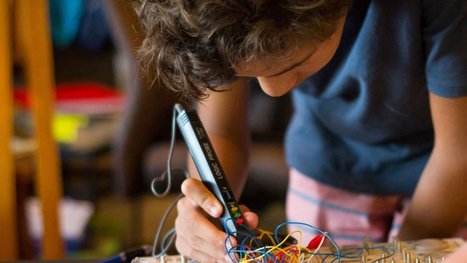

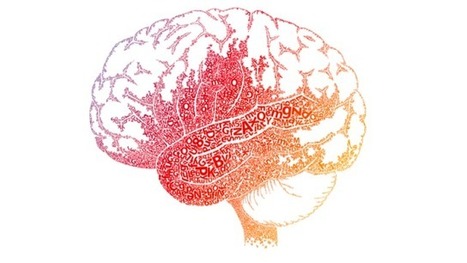



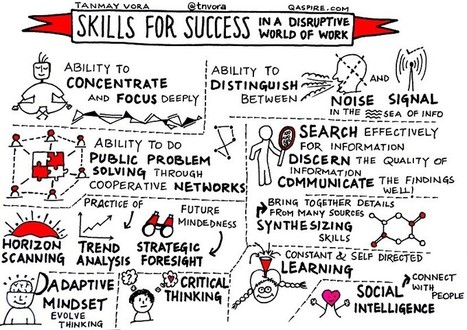



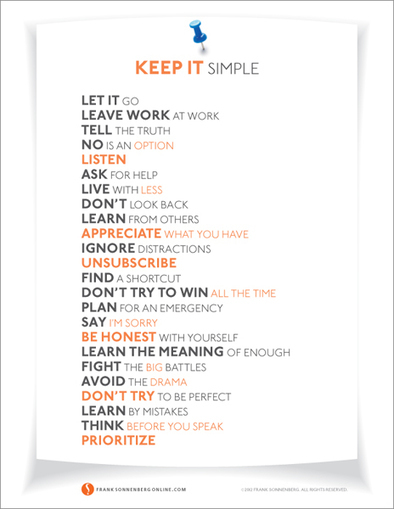





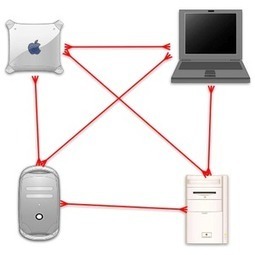









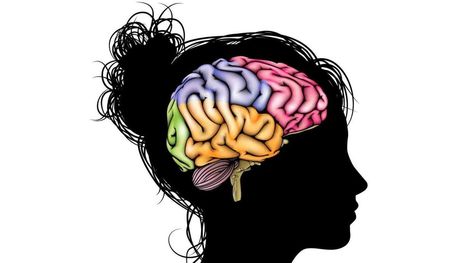

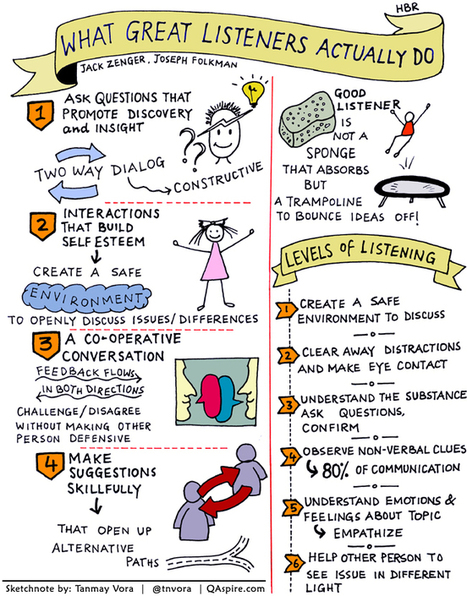

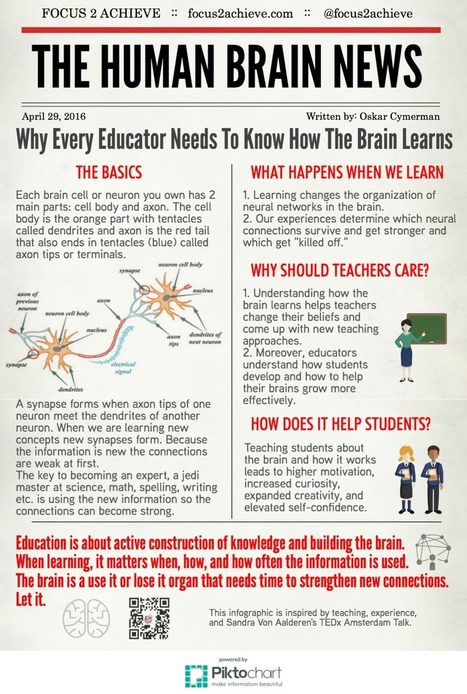





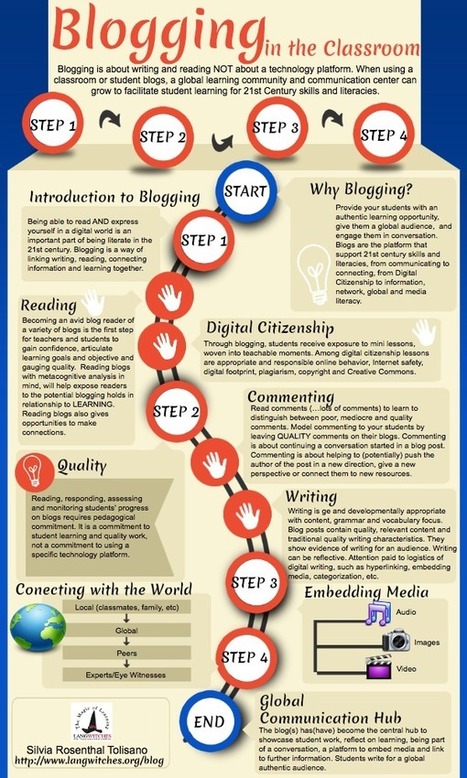

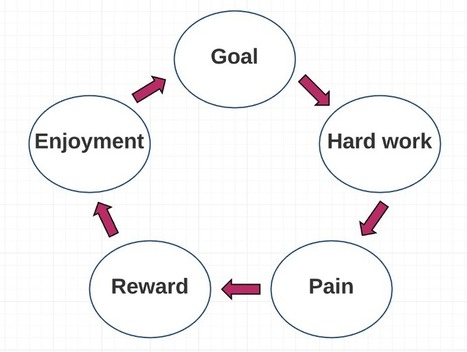

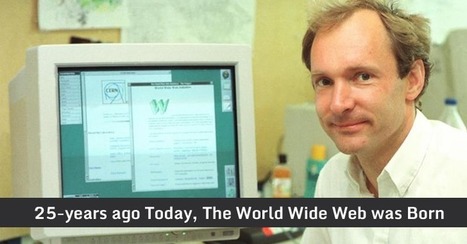


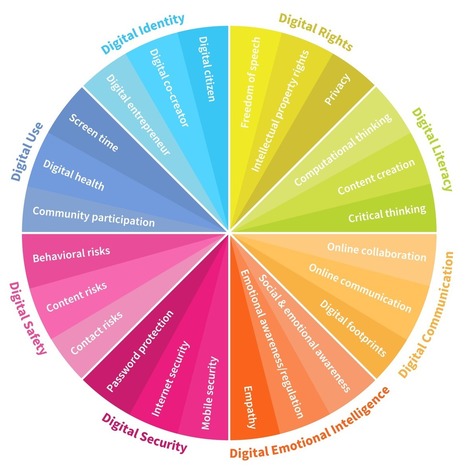




![Teacher leadership & deeper learning for all students [#Infographic] | #CTQ #CTQCollab | KILUVU | Scoop.it](https://img.scoop.it/3faSGv3dlsagJhsskEuNkDl72eJkfbmt4t8yenImKBVvK0kTmF0xjctABnaLJIm9)








If students use their hands as well as their minds, they're essentially learning twice.
Learn more / En savoir plus / Mehr erfahren:
https://gustmees.wordpress.com/?s=maker
https://www.scoop.it/t/21st-century-learning-and-teaching/?&tag=Ideas+for+makerspaces